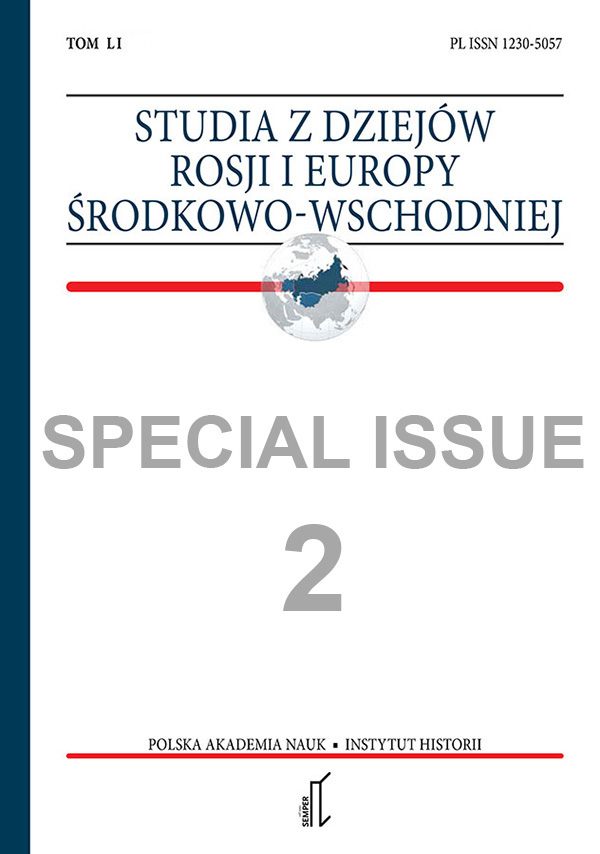The biographies of leading Belarusian activists in the light of information gathered by the Polish Governmental Commissioner for the City of Vilnius in 1924
The biographies of leading Belarusian activists in the light of information gathered by the Polish Governmental Commissioner for the City of Vilnius in 1924
Author(s): Joanna Gierowska-KałłaurSubject(s): Local History / Microhistory, Political history, Social history, Recent History (1900 till today), Interwar Period (1920 - 1939)
Published by: Instytut Historii im. Tadeusza Manteuffla Polskiej Akademii Nauk
Keywords: All-Belarusian Congress of 1917; Polish borderlands 1918–1939; Vilnius Land 1922–1925; Belarusian activists in the Vilnius Region
Summary/Abstract: In response to the complicated situation in the north-eastern territories in 1923–1924, the Department of Security (Information Agency) of the Ministry of Foreign Affairs in Warsaw decided to address in the autumn of 1923 an inquiry to their governmental commissioner about the leading Belarusian activists in the Vilnius Region. In the archives of the commissioner for the city of Vilnius, the author of the present study has found reports on fifteen Belarusian activists from the area and beyond: Usyevalad Bil’dzyukyevich, Klawdziy Duzh-Dushewski, Fabiyan Yaremich, Mikhail Kakhanovich, Arsyen Kanchevsky, Mikalay Krasinski, Yazep Lahinovich, Anton Luckevitch, Yazep Mamon’ka, Radaslav Astrovski, Mikhail and Frantsishak Pyatkyevich, Vasil’ Rahulya, Symon Rak-Mikhaylowski and Uladzimir Samoyla. The study is supplemented with a note on Boris Kletskin, a Jew who supported the Belarusian movement in Vilnius. However, the informants of the political police would avoid talking about current events, shedding instead new light on the developments from the early 20th century, with special emphasis on personal data from the period of the First All-Belarusian Congress (a congress of Belarusian political organisations and groups held in Minsk in December 1917). This information is crucial for other reasons too, since it allows us to put forward the thesis that some of the Belarusian leaders (mainly Mamon’ka) had deliberately imperilled other activists for their own gain. These sixteen reports are also surprising by the openly empathetic attitude of the officers of the Polish Information Agency in Vilnius towards a majority of the figures being described (including Boris Kletskin).
Journal: Studia z Dziejów Rosji i Europy Środkowo-Wschodniej
- Issue Year: 51/2016
- Issue No: 2
- Page Range: 31-71
- Page Count: 41
- Language: English

